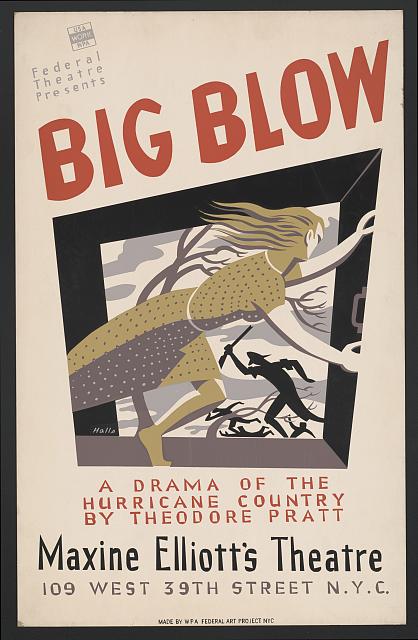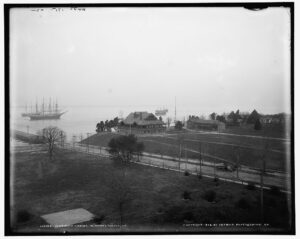Southern Legitimacy Statement: Though I was sired in New York City, my folks brought me up in Central Pennsylvania. Pennsylvania isn’t the South, you say? Alright, friendo. Step into my office. See this map? Pittsburgh over on this side, Philly on that one? All this in the middle here is what we affectionately call Pennsyltucky. It’s about as northern as the Appalachians get in most folks’ book. If you don’t believe me, take a walk through Tyrone, where the following story crawled out of, and tell me what you see. Tell me just how New England it feels to you.
Cut Tomatoes
*Trigger Warning – Gore, loss of life, drug use, child abuse via neglect
I can still feel the heavy hands come down on my shoulders as I sat in the unnatural fluorescence of the library lights. For an animal moment, my knuckles whiten and neck grows taut against looming fangs or fists, but it’s just Mori. They smile and we chat and I’m there again. Not much was up, they said, except they felt death on their back. I don’t know what that means, Mori. You alright? I’m cool, but I do get these feelings sometimes. Woowoo stuff, I thought, but still I breathed and smiled and we chatted.
Later that night, working at the restaurant, everyone dressed in black waiter clothes, and Maggie asks if I’d heard. It’s Otto. I’m so sorry. I hear her words, but it’s her eyes that tell me he’s gone, which can’t be, because we were just together. A thick hum pushed the blood out of my head and the world listed dangerously, like someone taking a plate from your well-balanced, outstretched tray. He used to work here, I remember watching Maggie move from black figure to black figure, leaving them listing with her eyes one after another.
Then it’s me and Buck, I remember, speeding to be with our pack, Otto’s band, the tribe, to weep and whiskey wish. We soaked the fickle air with full-blast recordings of Otto’s improbable roar, and when the sun came up, we knew what the word wake meant.
Sunday night, cramming Spanish flashcards, fluffing a reflection for a seminar that I had cared about, and I hear frantic footsteps pound up the stairs. I’d broken up their fighting down there before. Had he finally snapped? The downstairs neighbors were unstable, violent, addicted to something dark and intravenous. Their arguments used to roar through the horsehair plaster, competing for loudest with the sound of their child’s keening. Just keep calling, CPS said, gotta call six, seven times before we send someone usually.
Help! It’s bad! The wife neighbor shrieked through our paperboard door with its gauze curtain and plexiglass window. I remember a dull but constant worry each time I’d leave mom home alone, separated from that maelstrom by such thin materials. I opened the door and there she stood, so drenched in blood that it looked fake, I remember. What did he do to you? It’s him, she said. Help, please.
From behind her drifted the husband, his gray face leeched of color that now trailed out thickly behind him on the stairs. The blackest blood I’d ever seen dripped from his clothes. Dark ropes of the stuff spooled from the sticks and knobs that he seemed made of. He clenched the inside of his bony right arm for dear life, trying to keep it in, but I remember it pumped between his fingers and uncoiled onto the walls anyway.
I called the cops but forgot about the phone because the man was swaying now. A belt appeared in my hands, braided multi-color leather, once-whimsical beige and sage and lavender, I remember, a gift from mom from years and years ago, when she was still more vertical than horizontal, and as I yanked it tight around his draining arm, its delicate shades seemed to drink up the dark. Tighter, man, his voice itself thin steel. Except for skulls I’d never seen eye sockets like that. Please, he begged without much zest.
Here too, he said, down here, what about this, and he seemed to flicker as he looked down at something. What I had thought was blood from his arm was its own separate tragedy. Someone had torn him open, and through his fingers peeked pinks and blues and browns, body secrets not meant for seeing. A towel appeared from somewhere and I jammed it in. He flickered again, more sketch than man.
Then we were outside. The hospital was three minutes away. We would make it. It was the dead of an Appalachian winter, bitterly cold—the word Appalachian comes from the Native Apalachee people of Florida—so I took my jacket off and put it around him—the word Abalahci means on the other side of the river. I looked for my keys but couldn’t find them. Frantically I clawed at my pockets, pawed at the ground, billowing thick frenzy into the cold, when suddenly the police car roared up. I never gave my address. How? Turns out 911 traces calls like mine, the ones that leave the dispatcher ma’aming and sirring at scuffles and muffled cursing through forgotten phones and what the fuck happened to him, the cop demanded. I remember the cop’s hand hovering like a snake at his hip for long seconds until he saw I was good.
Next the ambulance roars up but can’t get through, the cop car was in the way, the officer busy sealing with his hands the little life left, pressing it in, and I asked should I move your car, officer? Hurry up, steering column shifter, and am I actually driving a cop car right now? And then I’m back outside, the neighbor is in the ambulance, the cop is in my face with his flashlight. Gotta check you, he says. Check me? I’m good, remember? The blood, he said, an epidemic, they’re carriers, heroin, bad bad, disease, dirty needles, crazy right now. Let’s see. Any on you? Any on me? He searched my clothes and body with his flashlight but couldn’t find a drop. He knelt there in the cold for a moment afterward, I remember, looking up, searching my eyes with confusion and disbelief and maybe fear.
Suddenly we’re in the neighbors’ kitchen, the other side of my floor, their ceiling, the place below where the slamming and the screaming happens. The wife leans there waiting, three cops total now, none phased by the overexposed crimson pools on the linoleum. His back was turned, she said, bored sounding. Couldn’t see what happened. He was cutting tomatoes. Must have slipped? Dunno where the knife is.
From nowhere comes a curly headed kid, cute, I remember, and his face was fresh ice, bright and blank but for two or three streaks like paint that said he’d seen some war. In the bathroom I clean his face and watch it thaw. I sit him on my lap, we read a book in bad Spanish. I remember the ice of his face cracking through then, giving up the smallest spore of dormant hope, a fragile mote that plead in the clearest, saddest language. Please, it said. Finally? It’s cold down here, please, morning? Please, warmth? Light, please?
Two hours later in the apartment that had just been bohemian-quaint, I hear feet on the stairs again, padding slow and soft this time, the door shakes, white knuckle neck bulge, waiting, but she’s only clean and quiet and asks quite pleasantly for a ride to the hospital. He’s in surgery, she said. They’re not sure. Her clothes smelled like fake fabric softener flowers, and I remember a blackness shrouding her, woven in strands around her head like a sick halo. Some of those strands might have gotten on me, might be clinging still.
Snowing hard, nearly a foot of it on the highway, but I drove her to the hospital when she asked. Who could say no? Silent for 10 minutes. 20. And then in a flat, gravelly growl, I remember hearing this: I lied to the cops. There weren’t any tomatoes. There were never any tomatoes.







